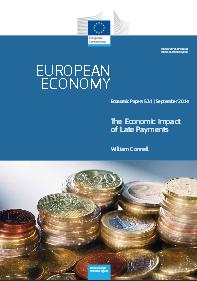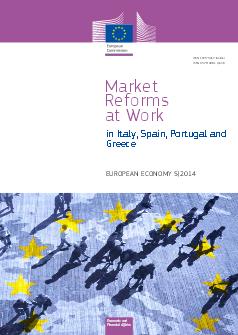Louri-Dendrinou, Ε. (2014) “Economic and financial changes since the onset of the global and euro area crises“, LSE EUROPP Blog, Greece: Taking Stock, 06 November. With the introduction of the euro and the mispricing of sovereign (Greek) risk, a flux of funding inundated Greece and helped fuel an impressive growth rate (averaging 4%) in 2000-2008. Growth, combined with low inflation since monetary policy was managed by the European Central …Read More
David Einhorn on Pireus Bank: now I know what He thinks
David Einhorn on Pireus Bank: now I know what He thinks, ViennaCapitalist Blog, 05 November. I am grateful to reader IAthinker who commented on my recent Pireus bank post providing a link to David Einhorn’s presentation he gave at the recent Robin Hood conference, an annual gathering of Hedge Fund managers. At the conference, Einhorn reiterated his bullish stance on Pireus and Alpha bank, two of the biggest banks in Greece. As regular readers know, …Read More
Lower levels of clientelism in Portuguese politics explain why Portugal handled austerity better than Greece during the crisis
Afonso, A., Zartaloudis, S. & Papadopoulos, Y. (2014) “Lower levels of clientelism in Portuguese politics explain why Portugal handled austerity better than Greece during the crisis“, LSE EUROPP, 27 October. Greece and Portugal were two of the worst hit countries by the Eurozone crisis, yet the domestic political reaction within each state was notably different. While in Greece there were difficulties agreeing to austerity policies and the party system …Read More
Greece’s Economic and Political Traps
Konstandaras, N. (2014) “Greece’s Economic and Political Traps“, The New York Times Opinion Pages, 26 October. Five years into the Greek crisis, it is becoming increasingly difficult to hope that it will end anytime soon. Perhaps we expected too much: that the largest international bailout in history would help set the economy back on its feet within a couple of years; that we could put the problems that had …Read More
Greece’s shadow economy: The treasures of darkness
“Greece’s shadow economy: The treasures of darkness“, The Economist, 10 October. Getting Greeks to pay more tax is not just hard, but risky TWO out of three Greek workers either understate their earnings or fail to disclose them to the taxman altogether, according to Stephen Hall, an adviser to the Bank of Greece. Last year an estimated 24% of all economic activity in Greece went undeclared to evade tax …Read More
Private Bad Debt Buildup Casts Shadow on Greek Rebound
Chrepa, E. & Chrysoloras, N. (2014) “Private Bad Debt Buildup Casts Shadow on Greek Rebound“, Bloomberg News, 29 September. To Aristides Belles, it’s clear what’s blocking Greece’s recovery: a quiet build-up of about 164 billion euros ($208 billion) in bad loans. “The inability of Greek companies to repay their loans to banks and their dues to the state is clearly holding back Greece’s return to growth,” said the chief …Read More
Economic Impact of Late Payments
Connell, W. (2014) Economic Impact of Late Payments, European Commission – European Economy, Economic Papers 531|Σεπτέμβριος 2014. Delays in payments in Business to Business (B2B) and Government to Business (G2B) transactions generally have an adverse effect on the cash-flow of firm and can cause firms, particularly small ones, to seek extensions of their overdraft facilities and increase their borrowing. Late payment of commercial debt can play a significant role …Read More
Market Reforms at Work in Italy, Spain, Portugal and Greece
European Commission (2014) “Market Reforms at Work in Italy, Spain, Portugal and Greece“, European Economy 5|2014, Economic and Financial Affairs, September. As part of the response to the crisis, a significant number of market reforms were introduced to boost economic activity and competitiveness. The intense reform effort appears to be showing early signs of effectiveness in some of Europe’s most vulnerable countries. Insufficient reform efforts in the years before …Read More
The IMF and Sovereign Debt
Joyce, P. J. (2014) “The IMF and Sovereign Debt“, Economonitor–A Roubini Global Economics Project, 09 September. The continuing inability of the Eurozone economies to break out of their current impasse means that any optimistic projections of declining debt to GDP ratios are unlikely to be achieved. As long as European governments continue to raise funds in the financial markets on favorable terms, the current situation remains sustainable. But the …Read More
The 13th Labour of Hercules: Inside the Greek Crisis
Palaiologos, Y. (2014) The 13th Labour of Hercules: Inside the Greek Crisis, Portobello Books Ltd, 04 September. Since the revelation of its massive hidden deficit in late 2009, Greece has been at the centre of the world’s attention. Observers around the globe have watched with morbid fascination as the country has repeatedly flirted with political and financial chaos, as one failed rescue programme has followed another, as extremism spread …Read More







